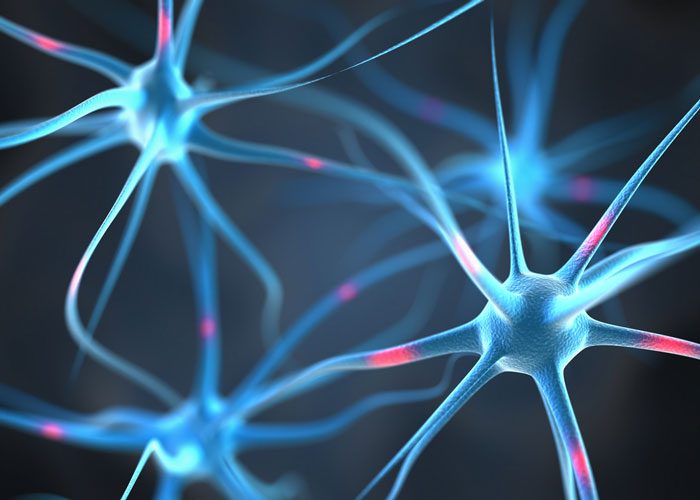Thorase protein may be linked to schizophrenia
Posted: 4 January 2018 | Dr Zara Kassam (Drug Target Review) | No comments yet
Epilepsy drug reverses anti-social behaviours in mice with genes that produce variant proteins…


Researchers have identified rare genetic variations in a protein called Thorase, which is responsible for breaking down receptors at the connections between neurons in the brain. By targeting Thorase’s function, the scientists say they have successfully reversed anti-social behaviour in mice genetically modified to carry the variants by using the anti-epilepsy drug perampanel.
To learn if such overexcited neurons were linked to human mental disease, Dr Valina Dawson, Professor of Neurology in the Johns Hopkins University School of Medicine’s Institute for Cell Engineering and her team sequenced the gene that carries the specifications for making Thorase using DNA from blood cells taken from 712 people diagnosed with schizophrenia and 649 people without the disorder. All samples were taken at Johns Hopkins hospitals.
The scientists found three rare gene variants in five people among the entire group. Two variants occurred in patients diagnosed with schizophrenia and a third variant was found in two males with schizophrenia and one female control. A deletion or substitution in the DNA sequence encoding a protein will change its function.
The researchers found that genetic changes found in these patients decreased Thorase’s ability to do its job.
To learn more about the behavioural impact of these variants, Dr Dawson, and her team genetically engineered groups of mice, each expressing one of the three variants.
About 36 mice with Thorase variants were exposed to various cognitive and social challenges, such as new environments and unfamiliar mice.
When placed in a new environment as part of an experiment called an “open field” test meant to measure anxiety and physical activity in mice, the mice with the Thorase variants explored less of their surroundings, and showed signs of higher anxiety than control mice. Dr Dawson says this may be an indication of defects in their spatial reasoning, that is, their ability to navigate their surroundings.
Similarly, in social interactions with newly introduced mice, normal mice typically spend more time investigating newcomers compared to mice already familiar to them, says Dr George Umanah first author on the study and assistant professor of neurology at the Institute for Cell Engineering. However, mice with the Thorase variants split their time evenly between the familiar and new, unfamiliar mice and eventually showed preferences for being alone in an empty part of the cage. This preference for isolation is also found in humans with schizophrenia.
Dr Mikhail Pletnikov, Professor of Psychiatry and behavioural sciences and an animal behaviour expert on this study, cautions that while behavioural assays such as these are indicative of biological changes in mouse brains, they cannot serve as precise parallels for human disease. But the changes do offer support for considering Thorase as a factor in some brain disorders.
To investigate that idea further, researchers gave an already FDA-approved epilepsy drug, perampanel, to mice with Thorase variants. When they retested the mice’s cognitive and social behaviours, the treated mice were more similar to mice with normal Thorase.
Perampanel, an AMPA-receptor antagonist, works by inhibiting the activity of AMPA receptors. In healthy brains, AMPA receptor activity allows people to move, create memories and recall information. When AMPA receptors are not dismantled, as appears to be the case in brains with the Thorase variants, signals may be sent too strongly or too frequently and may be responsible for at least some of the problems associated with epilepsy, schizophrenia and other brain disorders.
The research group now plans to study other processes in the brain beyond AMPA receptors that could be affected by changes in Thorase. “If we understand how Thorase behaves across functions in the brain, we might be able to take a more holistic, multi-target approach to treating schizophrenia,” Dr Umanah says.
“Our study provides preliminary support for the idea that Thorase activity is linked to some behavioural disorders, perhaps including schizophrenia,” says Dr Dawson. She cautioned that the gene variants in her research are very rare and that more research must be done to verify Thorase’s role in the disease.
“Thorase regulates chemical receptors on neurons by taking them apart when their job is done,” explains Dr Dawson. “If Thorase isn’t functional, those receptors don’t get disassembled and neurons become overexcited.”
The findings have been published in Science Translational Medicine.
Related topics
Disease research, Drug Discovery, Protein, Proteogenomics
Related conditions
Schizophrenia
Related organisations
Johns Hopkins Medicine, U.S. Centers for Disease Control
Related people
Dr George Umanah, Dr Mikhail Pletnikov, Dr Valina Dawson


